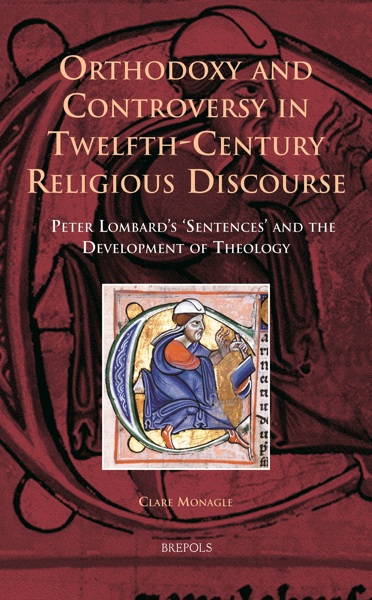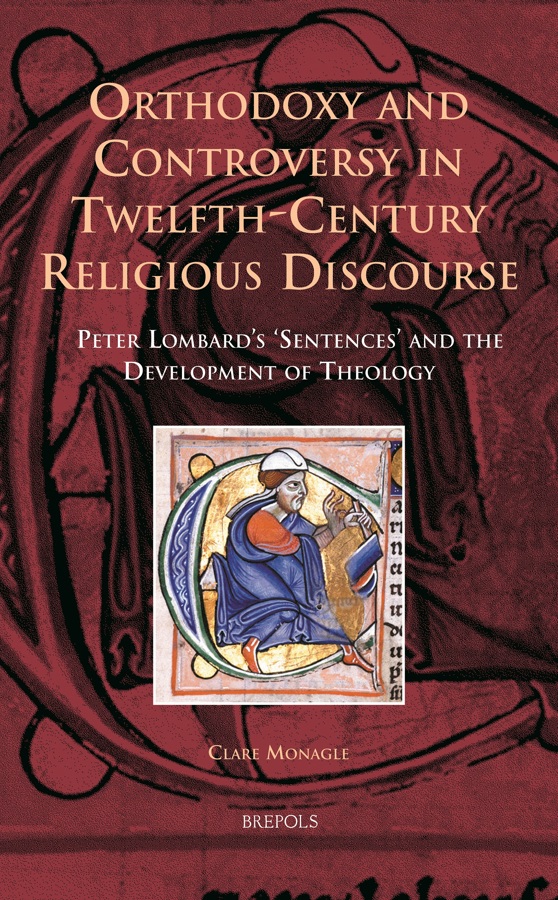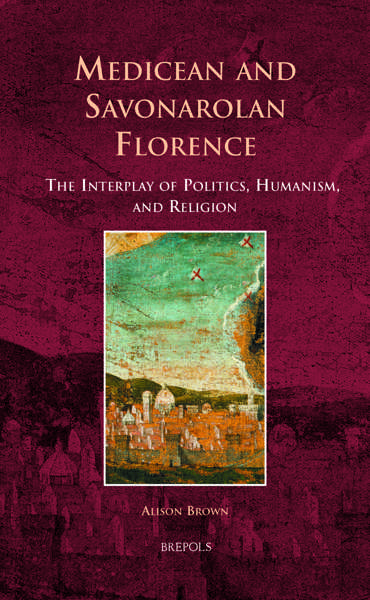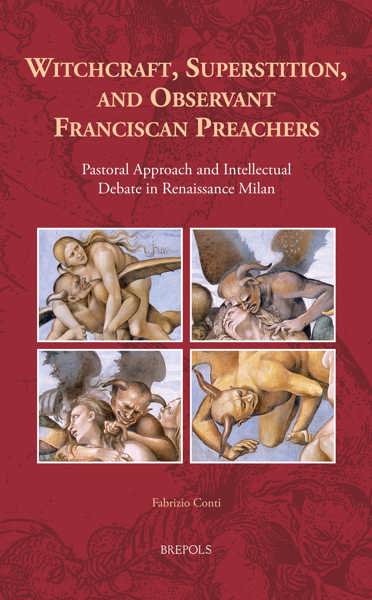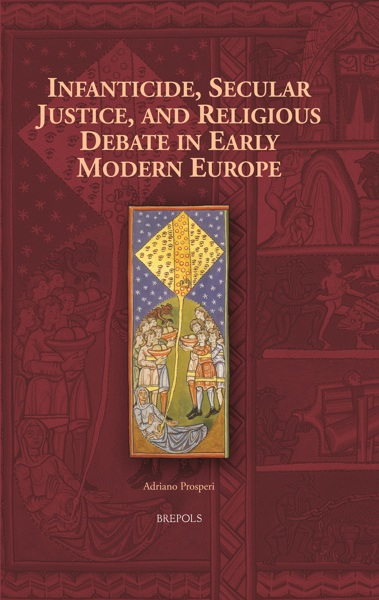
Orthodoxy and Controversy in Twelfth-Century Religious Discourse
Peter Lombard’s 'Sentences' and the Development of Theology
Clare Monagle
- Pages: xx + 194 p.
- Size:156 x 234 mm
- Language(s):English, Latin
- Publication Year:2013
- € 85,00 EXCL. VAT RETAIL PRICE
- ISBN: 978-2-503-52795-6
- Hardback
- Available
- € 85,00 EXCL. VAT RETAIL PRICE
- ISBN: 978-2-503-55819-6
- E-book
- Available
This is the first book to look closely at the contested reception of Peter Lombard’s Sentences and its eventual triumph at the Fourth Lateran Council.
"Monagle's book introduces its subject clearly and advances its argument persuasively. Graduate students will find it to be an excellent survey of twelfth-century Christology that softens the chronological and institutional contours of early scholastic disputes." (John Cotts, in: Sehepunkte, Ausgabe 14 (2014), Nr. 6)
"(...) (Monagle's) arguments are well articulated and largely persuasive. She also succeeds in writing clearly, making otherwise difcult debates intelligible. This book will be useful for a range of readers interested in the history of ideas and in the important transformations of the twelfth and early thirteenth centuries." (Spencer E. Young, in: The Journal of Ecclesiastical History, Volume 65/4, dated October 2014)
"In sum, this is a readable book with a clear-cut argument that will greatly contribute to our understanding of twelfth-century debates." (Peter Gemeinhardt, in: The Catholic Historical Review, Vol. 100, n° 4, Autumn 2014)
"En somme, écrit avec une limpidité caractérisant l'assimilation réussie de la difficile matière traitée, le livre de Clare Monagle constitue une synthèse utile que rendra des services à tous ceux qui s'intéressent à l'histoire doctrinale et culturelle du XIIe siècle." (Cédric Giraud, dans: Francia-Recensio, 2014/3)
"(...) Monagle's book is a stimulating study that offers insights into Peter Lombard, his theology, and its myriad and lasting intellectual, institutional, and ecclesiastical receptions." (Franklin T. Harkins, in: The Medieval Review, 15.01.34)
"Monagle is to be highly commended for the quality and range of scholarship that are on display in this volume, as well as the enjoyable prose. The book can be studied with benefit by historians, medievalists, and systematic theologians desirous of deepening their knowledge of the content and controversies associated with the Christological and Trinitarian doctrine of Peter Lombard." (Roger W. Nutt, in: Speculum, 89/3, July 2014, p. 807-809)
"This book should be read for its freshness and energy and the compelling challenge to rethink the development of medieval theology." (Thomas A. Fudge, in: Parergon, 32.1, 2015, p. 262-264)
“Monagle’s masterful study assesses the combative rise of Lombard’s work. (…) Monagle’s book is a welcome addition to twelfth century scholarship, providing invaluable insight into the complicated and often overlooked social, theological, and educational dynamics of mid-twelfth-century Paris.” (Nicole Reibe, in Religious Studies Review, 41.2, 2015, p. 86)
« On le voit, C. Monagle a produit un livre d’histoire intellectuelle, qui (…) soulève un ensemble de questions clés pour notre compréhension de la nature et du rôle de la théologie au Moyen Âge. » (Christophe Grellard, dans Cahiers de Civilisation Médiévale, 60/238, 2017, p. 193)
“Il volume di C. M. ha il pregio di assumere questa prospettiva e svilupparla con coerenza e con un’acribia filologica nell’analisi dei testi e delle fonti (…) Ne emerge un quadro innovativo ed analitico di un dibattito dottrinale magmatico (…).” (Riccardo Saccenti, dans la Revue d’Histoire Ecclésiastique, 1-2. 2018, p. 385)
This is the first book to look closely at the contested reception of Peter Lombard’s Sentences and its eventual triumph at the Fourth Lateran Council. By placing Peter Lombard’s career and works within the broader frame of twelfth-century ideas, practice, and institutions, the author explores and contextualizes the controversies that attended the publication of the Sentences. At the same time, she also traces the growing popularity of the Sentences and its increasing prestige and importance among the literary elites of Northern Europe.
The book argues that the allegations of error made against Lombard’s Christology and Trinitarian theology in the period between 1156 and 1215 must be understood in the longer history of intellectual controversy in the Schools of Northern Europe. In the trials of Berengar of Tours, Abelard, and Gilbert of Poitiers, the author uncovers a consistent tradition of critique within the schools which, she then shows, inform subsequent criticisms of Peter Lombard’s intellectual legacy. Concomitantly, she explores how responses made in support of the Sentences, against men such as Gerhoh of Reichersberg and Joachim of Fiore, consolidated the emerging canonical status of the work as a textbook in theology which would be finally endorsed at Lateran IV.
As such, this study challenges our understanding of the making of orthodoxy in the twelfth century.
Acknowledgements
Introduction
Chapter 1. Schoolmen and their Critics, from Berengar to Gilbert of Poitiers
Chapter 2. Peter Lombard’s Life and his Sentences
Chapter 3. Lombard’s Christology and its Critics
Chapter 4. Christology in the Schools after Lombard
Chapter 5. Lateran IV and Peter Lombard
Conclusion
Bibliography
Index
